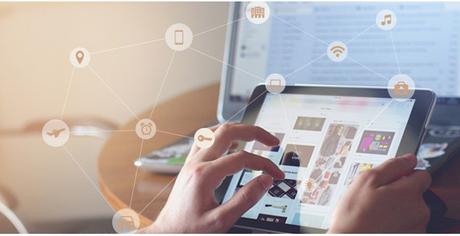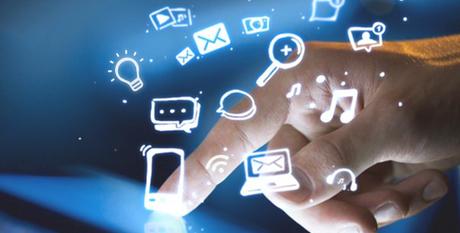According to Infosys, 78% of consumers said they’d be willing to buy from a retailer again if the offers were tailored to their interests, needs and wants. Furthermore, 86% of consumers have said that they’d be willing to pay up to 25% more for a better experience.
The world of brick and mortar retailing is changing fast. E-commerce and m-commerce provide a much more convenient alternative to shopping in a brick and mortar store. These new competitors can not only provide a much faster purchasing experience, where the customers can make purchases from the comfort of their own home, but e-commerce and m-commerce have a lot more data at their disposal which they can use to provide a tailored experience that offers suggestions, deals and special offers based on the customer’s needs and wants.
This is where IoT comes in. With IoT, brick and mortar stores can actually gather the information they need and provide a unique experience that cannot be matched by an online retailer.

IoT, Brick and Mortar
While the innovative possibilities are endless, a big application of IoT in traditional retail stores would be “heat maps” and movement tracking. This can be done in a variety of ways, including cameras, beacons and wireless triangulation of customers’ smartphones. Of course, the information can and should be gathered anonymously. By mapping customers’ movements, a retailer can determine particularly hot areas, and display relevant ads in that location.
Another application would be a motion sensor or camera that triggers when a customer is located at the gateway to a dressing room. This sensor would trigger and notify a sales associate when the customer is waiting for more than 15 seconds, thus potentially increasing revenue and improving the shopping experience through better customer service.
When it comes to the broad range of categories that IoT can be applied in one way or another, you have:
- Product tracking.
- Mobile payments.
- Inventory and asset management.
- Shopper insights and analytics.
- Interactive consumer engagement.
- Smart operations, such as hyper-local message targeting.
Using IoT, traditional retailers will also be able to:
- Increase customer loyalty and revenue.
- Strengthen brands.
- Cross-sell and up-sell within the store.
- Take advantage of real-time product promotion.
- Improve customer service.
- Lower the TCO (total cost of ownership).
- Increase business continuity.
- Boost in-store stock turns.
- Increase the efficiency of supply chain replenishment.

Real World Examples
Nordstrom uses in-store signs to boost sales by showcasing products that are trending on Pinterest. These displays draw attention to particularly hot items, which customers might be interested in. Disney uses RFID-enabled wristbands to provide customers with access to the theme park, access to hotel rooms, and as a means to pay for food and merchandise. The wristbands also track the activity data of the customers, and later, this data is used for analytics purposes.
Amazon also makes good use of IoT, and even though Amazon is not a brick and mortar retailer, the example showcases the power of this technology. With a tiny WiFi device that is called the Dash Button, Amazon provides customers a fast and convenient means to resupply on essentials such as laundry detergent. With the simple push of a button that comes with a pack of detergent, the customer can order and pay for a new supply of detergent.
Conclusion
The competition that online retailers are bringing to the table is forcing traditional stores to adapt. With easy access to information, online retailers had a powerful advantage over brick and mortar retailers. However, by using IoT, brick and mortar stores can catch up, and in some cases surpass their online competition by providing customers with the same conveniences that they’ve come to expect from online retailers, conveniences such as recommendations, personalized offers and rapid service.
About Finoit Technologies
Finoit Technologies is an IT company providing Web and Mobile application development services, and have worked on over 500 Web projects and over 200 iOS and Android apps from scratch.
